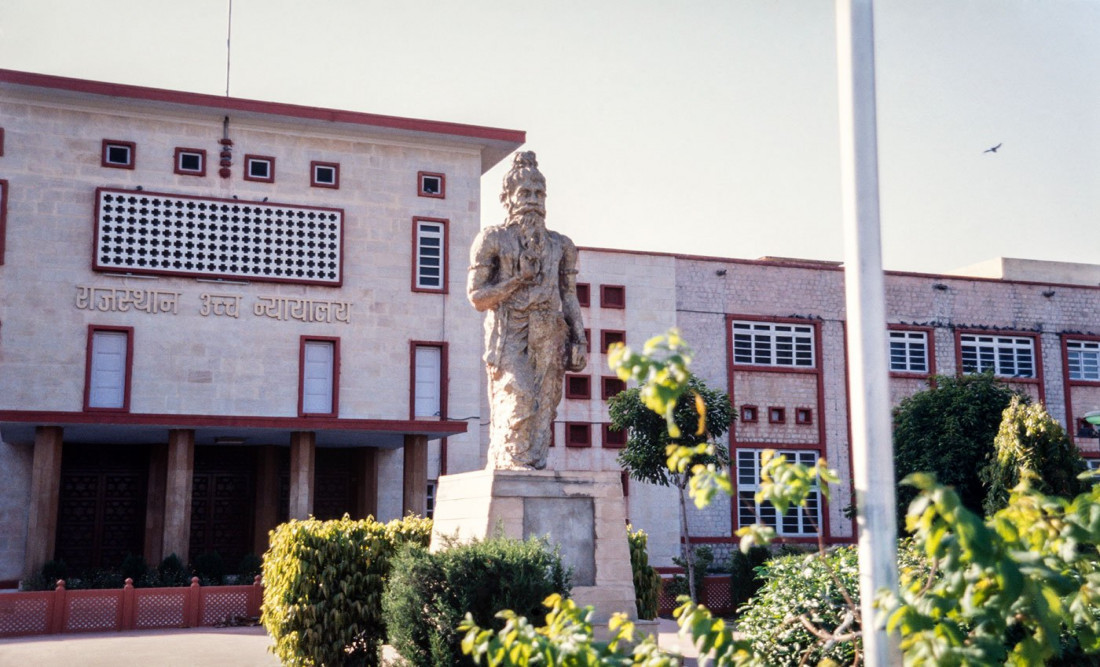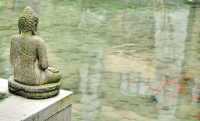Stories hidden in the prisons of Bahujans

What could be the rise of man to any civilization? Obviously, there is no prison. Where there is no captive, the same place would be the best place in the world. At the same time, there will be a human flourishing of civilization. Where will it happen? Is this a fiction? I think it is not a fiction but a dream for the eyes of freedom lovers. A writer's creative journey can be the imagination of a fearless and fearless civilization that instills confidence in the public that it must land on Earth. It is a lush and amazing region, littered with millions of unparalleled stories. Stories like these were never written that the authority lied to, and propaganda spread in the country and believed the world and people. Their memories were so angry and their feelings so intertwined that they did not even question the lies. Stories that strangled the sound inside are mercilessly and there is no safe narrator now. They do not know the storytelling of the countryside and countryside that gave voice to these stories. They went to vocalist Na Jaane Hera (Gum Ho) who was singing for them. Urban stories continued to slowly enter the realms and entertain rulers. They would associate the brains of cruel and inhuman rulers with false stories and mock reality.
Bihar Lenin Jagdev Prasad used to tell his people that the first generation would be killed. The second generation will go to prison and the third generation will rule. That is, they considered murder and imprisonment mandatory. The road to freedom and prosperity for the Bhujan community is between murder and imprisonment. The role of the first generation was played by Jagdev Prasad. Their blood mixed in the soil here. The name Jagdev Prasad will appear whenever there is a sound from the soil here. Just like Birsa Munda and Bhagat Singh, Jagdev Prasad's name will appear. Later generations were imprisoned on bogus cases. And false cases fell on them. Newspapers and activists campaigned hard against him. He got totally villain. They carried the sins they did not commit. He has continued the tradition that Jagdev Prasad gave his life for by broadcasting his life.
But is this prison an immediate thing? Could this be an instant thing? Is this something simple? I think prison is the most important part of our life. It depends on the way you look at it. To what extent they see those walls that remain the center of suppression of power and how much they can see around them, where no one but the man himself gives it. What an irony that you are the prisoner and you give the guard as a soldier. This is a state of slavery where the prisoner is lifeless.
In Brimchand's famous story, the story of bulls, when a diamond pearl breaks the wall of a kanji house, all the animals flee, but the donkeys don't run away. Both Hera and Moody sound the trumpets, but Gaderberg doesn't bother. Stand quietly. And stand there. Diamonds also came out. Maybe kanji house staff came in the morning and the donkeys were beaten angrily seeing the house empty, but they didn't smile. Prison has become mandatory in our lives, but we also consider it a prison or tell the story of the glory of slavery inherent in it. The real question is this.
Karl Marx called religion opium. The man under the opium does not understand what is good and bad. He is just drunk. He does not wake up even when waking up. But the truth is that religion is a prison in which the prisoner is never freed. You don't want to be free. People often hit their religious beliefs. What is this drummer? This is an attempt to describe himself as a very religious prisoner. The longer the vaccine, the larger the prisoner. Ironically, a person who is not such a great prisoner falls under the pressure of such righteousness. It feels small. If we look at him psychologically, religion puts a man in such a prison where he constantly puts the cover of inferiority on him and believes that this will end his financial and other problems and make him happy. We'll go.
But the opposite is true. The burden of inferiority on him increases so much that he dies under the same burden, but he feels no regrets. Schools are for reading. There are books and knowledge laboratories. As for ideas, there are Buddha, Socrates, Aristotle, Kabir, Ful, Marx, Periyar and Ambedkar. There is only one scientist in the world, a painter, a journalist, but all this is of no value to a religious person. These people do not give anything to his sterile mind. Alienate them. He does not see the earth moving. He is a very innocent man. Praying in the morning to gain knowledge and strength - Jai Hanuman Jian Junna Sagar. And he continues to pay tribute to Hanuman as he walks - Bhanu in Sahasra Yoga Yogana. Lilio is a chef who knows the sweet fruit. Even more etc.
The human mind was so degraded that scientists say that millions of years ago man was a monkey and with his intelligence he acquired the ability to be a man and learned to walk on two legs and make his front leg help. His tail has flipped. But by putting mud on all the merits of being a religious man, the monkey sheds tears in front of it as "greater than life." Nobody gets eaten in dozens of ways.
Indeed, he must be mentally imprisoned. Where a man's will and self-esteem diminish, then gods and goddesses are born. From this point of view, Hindutva and Brahmanism are a prison. A prison where humans are imprisoned within the walls of a layer of pearls in the kingdom of Varnas. From there he was forced to cut short his prison. He does not have any dissatisfaction with anything. They accepted what they got as law. Just think of the scope of that. If someone tries to encroach, then take every kind of action against them. Get down on honor killings. But those prisoners of Hinduism and Brahmanism who enforce the rules of the religion are more violent, dishonorable, brutal, and conspiratorial. They put them in Hindutva prison and seized all the country's wealth. Everywhere they establish their privileges. Whoever speaks against dishonesty and conspiracies of their own people, put them in every possible hideout.
Hindutva prison is more dangerous than any religious prison in the world, as human beings have been exploited indefinitely by colonizing them within the sphere of their religion. Christianity, Islam and other religions carried out their campaigns to expand, but Hindutva did not introduce any such campaign, as there were a large number of religious prisoners to feed its parasites. There was also no religious dogma, with which he would go somewhere and take the masses of other places under his influence. There was no such need. He was so immersed in his arguments that he had neither the courage nor the strength to campaign. We can see this also in the direction that leads to retro. Who did not fight right away. After he shows his back, but finds a certain part of history suitable for him, he distorts the old things and creates a false neutrality and works to take revenge on the innocent and helpless. In India, we can see that time today.
We can see how he turned all of the prisoners into violent and murderous, making the religious prison somewhat resilient and somewhat cruel. There are thousands of stories scattered about this prison that show the plight and defeat of the Bhujan communities, but with careful observation, they can investigate the reasons underlying their family's religious foundation. They can see the structure of situations and plots that are constantly reinforced against them. If Brahmanism died, the caste system would end, fifty percent of the prisoners would be exonerated, and the need for prisons would be eliminated if capitalism was destroyed. There would also be no need for prisons on the day the harem-eaters were no longer in the country. The whole problem arose due to the privileges granted to a small number of people and the deprivation of a large number of residents.
Prisons with a large number of prisoners are kept under the heavy guard of soldiers in the huge border walls. At the beginning of this century, the famous Cathapatica "Hans" painted a special piece of Dalit in which the data was published. In this, Dalit - backward - tribes - Muslims were the largest number of people executed and sentenced to life imprisonment. This means that the layer system is applicable here as well. Thousands of Muslims were held in prison for years in the name of terrorism, and when the trial continued, the charges against them could not be proven, and they had to be released. Whoever was sent to prison when he was twenty-five years old was released, innocent after ten years, he has lost everything. Life was torn apart. The family shattered. Helpless and incapable of living life. These stories are endless. I don't know how many inmates are in the prisons and there is no release date.
PVCHR, an organization that works among the Dalit-deprived Masharsh in Banaras and the surrounding areas, gave me years ago the task of studying and editing dozens of testimonies that were painful stories of a practitioner in prison for years without conviction. Offended someone and sent him to prison. Many different currents were charged, without hearing. Later, with the intervention of the Human Rights Committee, when he appeared in court, he could not be blamed. Torture in custody before he was sent to prison was a common story in his life. It is a question of studying what is the number and condition of the prisoners currently in prisons?
The extremely sensitive poet Mirza Ghalib sees life as a prisoner. Whatever the walls of families are invisible, but how can any lustful creator live without seeing them. If Ghaleb's vision saw life as a prison, it means that he was seeing the suffering of humanity in a corrupt street system where even a man was not able to become human.
Now in the new literature, the fundamental question must be how our era and our previous generations remain in captivity. What crimes did he commit while he was spending his life? What is the system that leads them to criminalization. Under what coercion were they forced to do such work that they lived their lives here? What are the stories and gifts that are familiar to them? If a sin is to be abhorred, then the stories of the sinner must be examined and written. If Emmanuel Ortiz remembers the endless number of innocents killed by a terrorist regime in a "minute of silence", and Ramshankar Yadav speaks about the rebellious police and courts and presents them in women's courts, the creators of this work must also actively pursue this work!

Manoj Bhiva
Manoj Bhiva is a dedicated writer who loves to write on any subject. Manoj Bhiva maintains a similar hold on politics, entertainment, health, abroad articles. Manoj Bhiva has total experience of 3 years in web and Social. Manoj Bhiva works as a writer in Wordict Post.
A 4.4 magnitude earthquake that struck Northern California only caused minor damage.
Posted on 14th Sep 2022

David Cameron held practice crowds with Ruler Charles III
Posted on 13th Sep 2022








